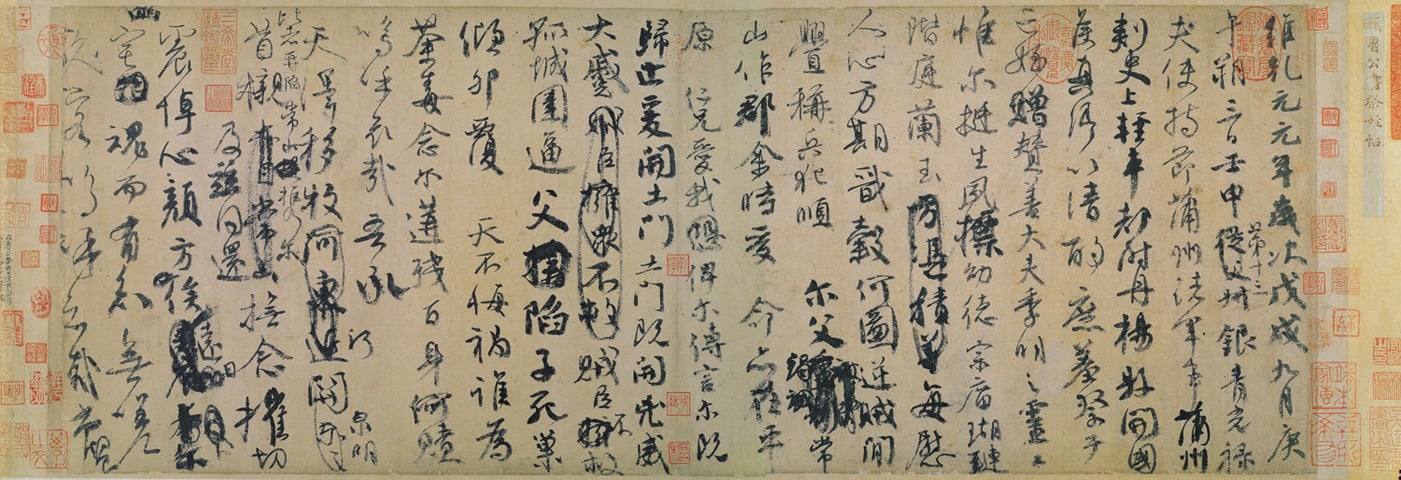
When the Tokyo National Museum in Japan organized an exhibition dedicated to master Chinese calligrapher Yan Zhenqing (709–785), it didn’t anticipate how fresh the wounds of the second Sino-Japanese War, starting in the late 1930s, when Japan occupied significant Chinese territory, still are to some Chinese people.
There is widespread outrage on Weibo, the popular Chinese social media network, over the loan of one of Yan’s most significant works, Requiem to My Nephew, from Taiwan’s National Palace Museum to the Japanese exhibition “Unrivalled Calligraphy: Yan Zhengqing and His Legacy,” reports the BBC.
“This is humiliating. This piece represents the heart and soul of China… and they are sending it to Japan. This is an insult to our ancestors,” wrote one Weibo user, according to the BBC. “Has Taiwan forgotten what Japan did to us? Do they know what the Nanjing massacre is?” asked another user, referencing the 1937 tragedy in which China claims Japan killed upwards of 300,000 people.
Yan’s work, a draft for a now-lost final version, is considered especially prized because it features additional markings by the artist. Yan created the mournful piece in 759 when he learned his beloved nephew had died. The Tokyo National Museum singles out Requiem as one of the artist’s masterpieces in the exhibition description, noting that he “succeeded in establishing his own style of calligraphy, which would have tremendous influence for ages to come.” It also proudly proclaims that the work is “on exhibit for the first time in Japan!”
Until now, Requiem has not left Taiwan since 1997, when it traveled to the National Gallery of Art in Washington, DC.
The issue is further complicated by Taiwan’s contested status within the Republic of China. During the Chinese civil war in the 1940s, the Nationalist government fled to the island of Taiwan, setting up a government in exile—and bringing some of the nation’s most prized possessions, including Requiem, with them. Despite calls for reunification, Taiwan remains self-governing today.
As of press time, neither the Tokyo nor Taiwan museums responded to requests for comment.